U.S. 'Relaxes' Biolab Regulations for Handling Deadly Pathogens Despite Ex-CDC Chief's Bird Flu Pandemic Warning
Reuters report raises possibility of "accidental spread of a deadly disease" and "deliberate attempts to use the pathogen as a bioweapon."
The United States has “temporarily relaxed strict guidelines” for handling, storing, and transporting dangerous H5N1 bird flu samples, following a request from the Association of Public Health Laboratories (APHL), a U.S. government-funded nonprofit membership organization.
Follow Jon Fleetwood on Instagram @realjonfleetwood / Twitter @JonMFleetwood
The move to loosen pathogen containment regulations even amid worries of a coming pandemic comes just after former Centers for Disease Control and Prevention (CDC) director Dr. Robert Redfield’s latest bird flu pandemic warning.
Per Reuters:
U.S. government officials have temporarily relaxed strict guidelines on how public health laboratories and healthcare facilities handle, store and transport H5N1 bird flu samples, which are considered high-risk pathogens, in response to the recent spread of the virus to dairy cattle.
The revised guidance, which has not been previously reported, came at the request of the Association of Public Health Laboratories (APHL), which represents state and local labs that monitor and detect public health threats, according to interviews and correspondence seen by Reuters.
APHL’s executive director, Scott Becker, claims his group made the request in order to “prepare for the possibility that H5N1 avian influenza, or bird flu, acquires the ability to become easily transmitted among people.”
Reuters:
The U.S. government strictly regulates the handling of so-called select agents, which include H5N1, Ebola, ricin and anthrax. All select agent material typically must be destroyed, decontaminated or transferred to a registered select agent facility within seven days of notification.
Under the exemption, ordered by the U.S. Department of Agriculture’s (USDA) Animal and Plant Health Inspection Service, labs handling samples identified as highly pathogenic avian influenza have a month to perform many of those tasks, reducing the bureaucratic burden and allowing lab staff to focus on testing, Becker said.
Effective since May 3, the U.S. government has temporarily modified H5N1 handling requirements for 180 days, affecting public health labs and wastewater testing facilities reportedly in order to aid in virus tracking.
The USDA—which has been performing gain-of-function research on H5N1 bird flu viruses and developing an H5N1 bird flu vaccine (here)—claims it had “determined that the public health labs and facilities established good cause for exemption from certain requirements.”
The Reuters report raises the possibility of “deliberate attempts to use the pathogen as a bioweapon”:
Safely handling dangerous pathogens presents a dual challenge for regulators, who want to respond to emerging outbreaks while preventing the accidental spread of a deadly disease and avert any deliberate attempts to use the pathogen as a bioweapon.
Other APHL leaders claim a staffing issue instigated the request:
Ewa King, former director of the State of Rhode Island’s public health lab who now oversees infectious diseases and other public health programs at the APHL, said the request was designed to cut bureaucracy and make the best use of laboratory resources in the event of an outbreak in people.
“If we had to be filling out these forms, we would be slowing down the testing, because there’s only so many people that we have to dedicate to these tasks,” she said.
The report noted the Biden administration’s promise to “provide nearly $200 million to fight the spread of the virus among dairy cows in an effort to contain outbreaks that have raised concerns about human H5N1 infections.”
In March, Congress passed legislation earmarking over $1 billion for a future pandemic involving a zoonic influenza virus, like H5N1 bird flu.
Follow Jon Fleetwood on Instagram @realjonfleetwood / Twitter @JonMFleetwood
Former CDC Director Warns of Coming Bird Flu Pandemic
Dr. Redfield, a virologist who served as CDC Director and the Administrator of the Agency for Toxic Substances and Disease Registry from 2018 to 2021, told NewsNation earlier this month he is “obviously most worried about bird flu.”
“Right now, it takes five amino acid changes for it to be effectively infecting humans. That’s a pretty heavy species barrier. But this virus is already now in 26 mammal species, as you most recently saw: cattle,” he said in the interview. “But in the laboratory, I could make it highly infectious for humans in just months.”
“That’s the real threat. That’s the real biosecurity threat that these university labs are doing bio-experiments that are intentionally modifying viruses—and I think bird flu is going to be the cause of the Great Pandemic—where they’re teaching these viruses to be more infectious for humans.”
You can watch the fuller NewsNation segment below:
In an earlier interview with Centerpoint TV, Redfield predicted the coming influenza pandemic would be much worse than COVID.
“I don’t believe [COVID] is the ‘great pandemic,’” he said. “I believe the great pandemic is still in the future. And that’s going to be a bird flu pandemic from man. It’s going to have significant mortality, in the ten to fifteen percent range. It’s going to be trouble. And we should get prepared for it.”
Treatment for Bird Flu
Early in the pandemic, U.S. authorities allowed novel COVID-19 jabs to receive an Emergency Use Authorization (EUA), allowing the drugs with no long-term safety data to be distributed to the public even though they hadn’t received full approval from the U.S. Food and Drug Administration (FDA).
But an EUA “can only be granted when no adequate, approved, available alternatives exist,” according to Yale Medicine.
Safe and effective drugs like Budesonide and Ivermectin have since been shown to be effective against COVID, raising questions about the EUA’s necessity.
As a result of the authorization, the COVID shots ended up killing about 17 million people worldwide, according to scientists representing the Canada-based nonprofit ‘CORRELATION Research in the Public Interest.’
In the face of a potential incoming bird flu pandemic, we already know antivirals like Xofluza and broad-spectrum anti-parasitics like Ivermectin—both fully FDA-approved—are safe and effective medicines against bird flu, removing the need for a novel vaccine treatment against the disease that might require an EUA.
Dr. Richard Bartlett, a 30-year Texas emergency room doctor, criticizes the U.S. government’s past handling of COVID measures.
“During COVID, hospital patients died alone after being denied family visits while fighting for their lives, scared and isolated,” Dr. Bartlett told this website.
“Nursing home residents were denied visits from loved ones, even if both they and their family members were healthy. Everyone was forced to wear flimsy masks made in China and maintain 6 feet of social distancing without scientific evidence. Some hospitals even placed plastic bags over the heads of patients who tested positive for COVID in the ER. Over a million American deaths were attributed to COVID. Many were coerced into receiving experimental shots to keep their jobs during the pandemic.”
Bartlett’s comment on social distancing comes the same day it was revealed that Dr. Francis Collins, who helped lead the government’s COVID-19 pandemic response as the Director of the National Institutes of Health (NIH), confirmed the “6 feet apart” rule was “not based on science.”
Bartlett then took aim at the U.S. government’s decision to ease lab regulations just before a possible H5N1 influenza pandemic.
“Former CDC Director Redfield says bird flu could cause 30 times the death and destruction of COVID,” he said.
“Is this the time to ease lab safety measures by the USDA for a potential bird flu pandemic? Did the USDA receive a letter from Senator Ernst asking if they colluded with Chinese scientists to make bird flu vaccines with US taxpayer dollars? Did the letter from Senator Joni Ernst ask about gain-of-function research on bird flu to make it more contagious and dangerous to humans? Common sense would dictate increasing preventive public safety measures when a disaster is anticipated, not relaxing lab safety measures. Has anyone heard that the FBI says COVID may be the result of a lab leak or worse?”
Follow Jon Fleetwood on Instagram @realjonfleetwood / Twitter @JonMFleetwood
U.S. Gov't Is Making a Vaccine for a Virus It Also Happens to Be Making More Deadly: Bird Flu
The U.S. Department of Agriculture (USDA) is spending $1 million of American taxpayer money to fund gain-of-function experiments on dangerous bird flu (avian influenza) viruses in collaboration with Chinese scientists, according to a new report.
Biden Signs Into Law Spending Bill That Could Apply Over $1 Billion to Future Bird Flu Pandemic: Doctor Says 'Bioweapon Event' Could Be Imminent
Summary: Biden signs $1.2 trillion spending package Legislation allocates $708,272,000 for emerging and zoonotic infectious diseases Additional $315,000,000 earmarked for flu pandemic preparation, includes vaccine production Congress readies over a billion dollars for future animal-to-human infectious diseases, like bird flu (influenza)
7 Studies Confirm Antiviral 'Xofluza' Is 'Drug of Choice' for Bird Flu, as USDA Tests Ground Beef for Virus
The U.S. Department of Agriculture (USDA) will begin testing ground beef for H5N1 bird flu (influenza) particles, as the virus has reportedly been found in nearly three dozen dairy herds across nine states.
8 Studies Support Ivermectin's Effectiveness Against Influenza Amid Bird Flu Pandemic Worries
As the H5N1 influenza A virus (IAV) infects birds and mammals, including humans, across the world, health experts are warning a bird flu pandemic could be “100 times worse” than COVID-19.
As Media Hypes Bird Flu-Infected Cows, Bird Flu Vaccine Discovered to Contain Neurotoxin Mercury, Dog DNA, Cancer-Causing Chemicals: FDA Package Insert
The U.S. Department of Agriculture (USDA), Food and Drug Administration (FDA), and Centers for Disease Control and Prevention (CDC) are claiming rampant bird flu (H5N1 avian influenza) has spread to dairy cattle across several states.
Gov't Spending Bill Gives $315,000,000 for Future 'Influenza Pandemic' Involving Virus It's Been Making More Contagious and Deadly: H5N1 Bird Flu
Congress on Thursday unveiled a $1.2 trillion spending bill meant to fund the government through September that includes hundreds of millions of dollars for the next “influenza pandemic.”
H5N1 Bird Flu Detected in Antarctica Right Next to U.S. Biolab After USDA Performs Risky Gain-of-Function Experiments On and Develops Vaccine For Same Virus
The United States operates only three year-round research bases in Antarctica: McMurdo Station on Ross Island, Amundsen-Scott South Pole Station at the geographic South Pole, and Palmer Station on Anvers Island in the Antarctic Peninsula region.
Vaccines Underway for All 9 of W.H.O.'s 'Epidemic Potential' Diseases—Is Bird Flu 'Disease X'?
The World Health Organization (WHO) lists the following as “priority diseases” which they claim “pose the greatest public health risk due to their epidemic potential.”
'Disease X Act of 2023' Introduced to Develop New 'Medical Countermeasures for Viral Threats with Pandemic Potential' Through BARDA Agency that Funded COVID Jabs: U.S. House of Representatives
A bill for developing new medical interventions against a potential future “pandemic” was quietly introduced to the U.S. House of Representatives on June 5, 2023.
Ebola Vaccine That 'Sheds' in 31% of Vaccinated Given to Colorado Healthcare Workers Just Down the Road from New Bat Lab
Editor’s note: This article’s headline has been updated to clarify that the FDA inset for Merck’s ERVEBO Ebola vaccine states that the vaccine “sheds” in more than 31% of those vaccinated with the drug. The prior headline said that the vaccine “‘Sheds’ Onto/Infects Others 31% of the Time.” It is more precise to simply say that the vaccine “sheds” in 31%…
New Colorado Bat Lab Location CSU Confirmed to Develop ‘CDC Tier 1 Select Agents’ Like Ebola Despite University's Denials
As health workers in Denver, Colorado receive doses of a “shedding” and live virus-containing Ebola vaccine, concerns have been raised over a new bat research facility to be built just up the road, at Colorado State University (CSU) in Fort Collins.
New Bat Lab Proposed Despite CDC's Past 'Serious Safety Violations While Working with Bioterror Pathogens' in Colorado
A new taxpayer-funded laboratory is being built in Fort Collins, Colorado that will import bats from around the world and experiment on dangerous diseases, potentially including Ebola, Nipah virus, and COVID-19.
mRNA COVID Jab Ingredient N1-Methyl-Pseudouridine (m1Ψ) 'Stimulated Cancer Growth and Metastasis': 'International Journal of Biological Macromolecules'
A new study published earlier this month in the International Journal of Biological Macromolecules confirms that an ingredient in mRNA COVID-19 injections called N1-methyl-pseudouridine (m1Ψ) increases cancer growth and spread.
Treaty 'Loophole' Allows World Governments to Develop Deadly Bioweapons Like COVID and Corresponding Vaccines: Yale Professor (Video)
The ‘Convention on the Prohibition of the Development, Production and Stockpiling of Bacteriological (Biological) and Toxin Weapons and On Their Destruction,’ known as the “Biological Weapons Convention” (BWC), was opened for signature in April 1972 and took effect in March 1975.

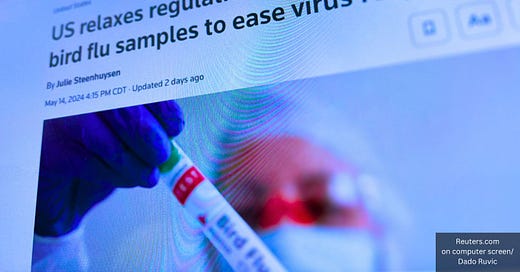



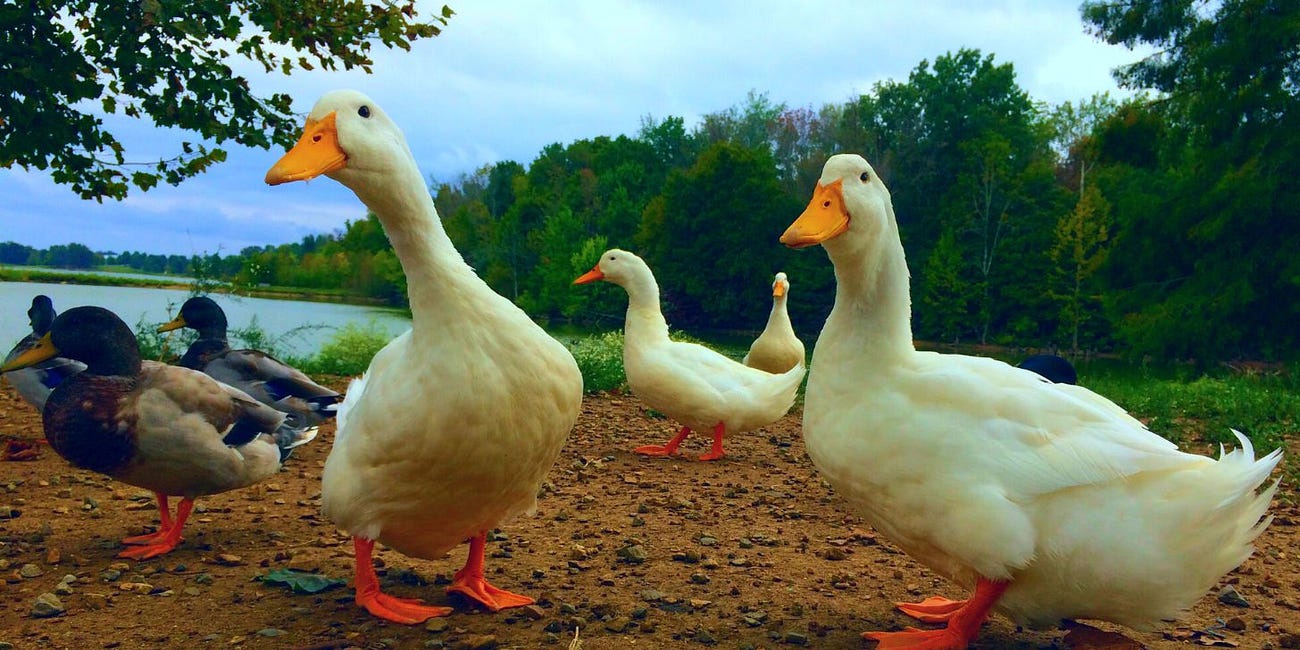

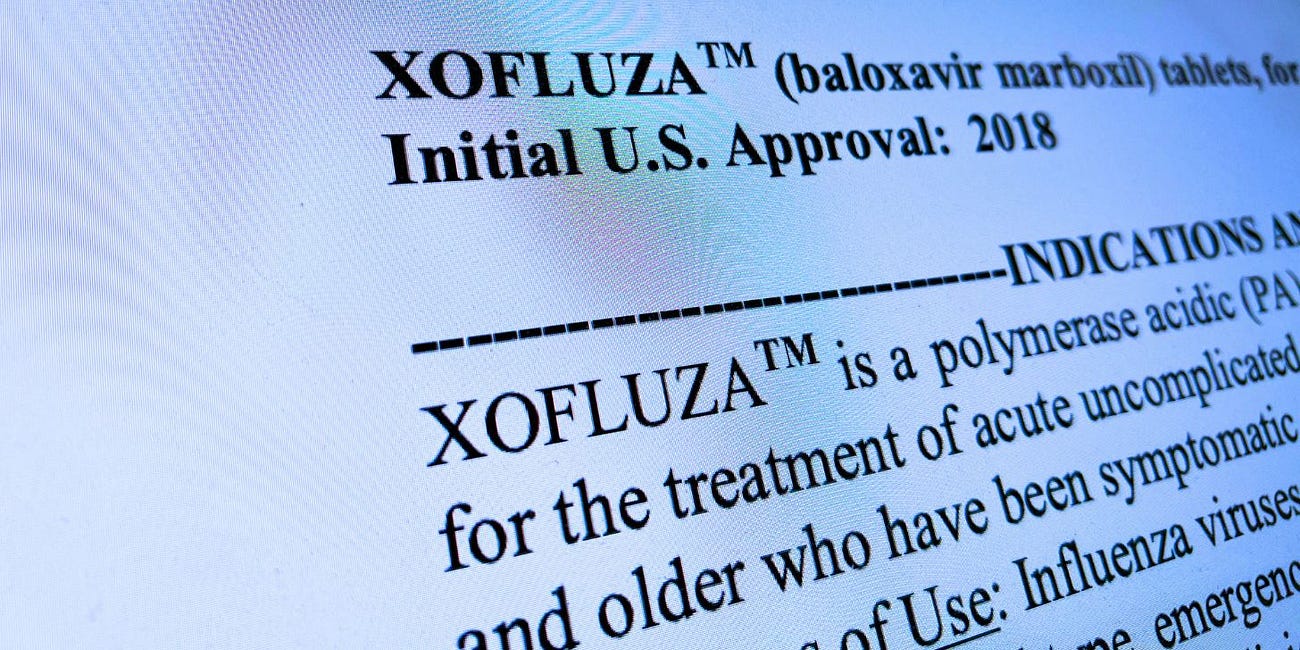
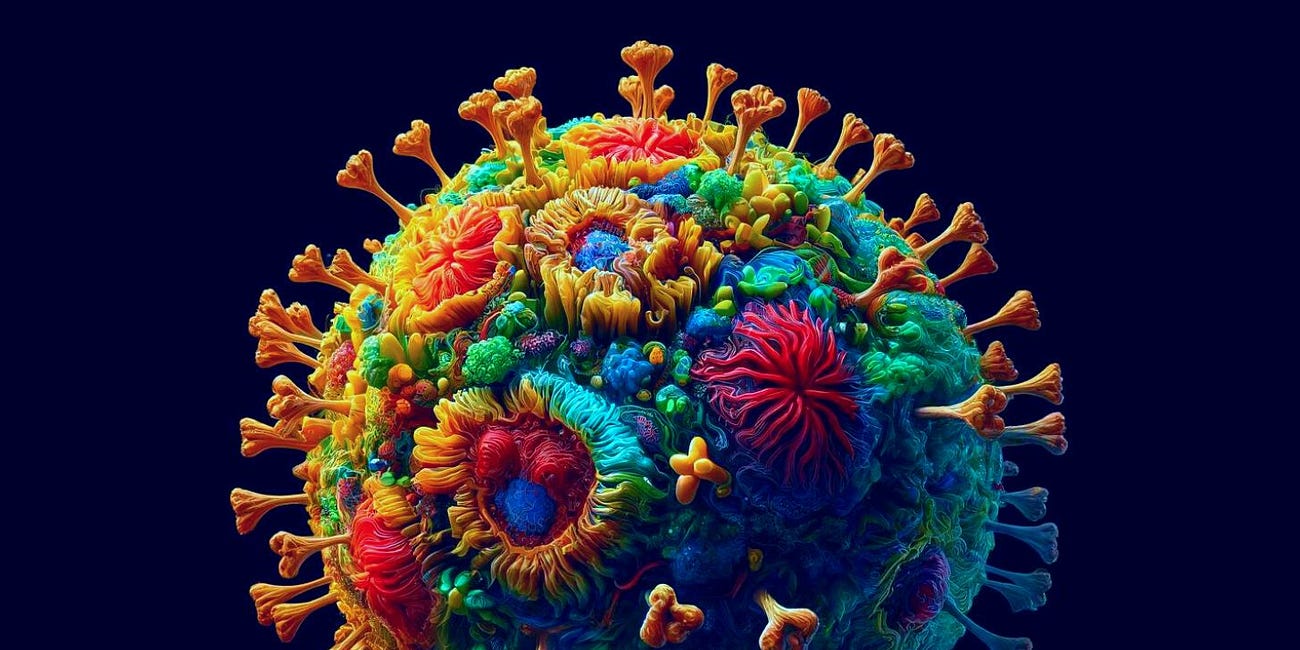
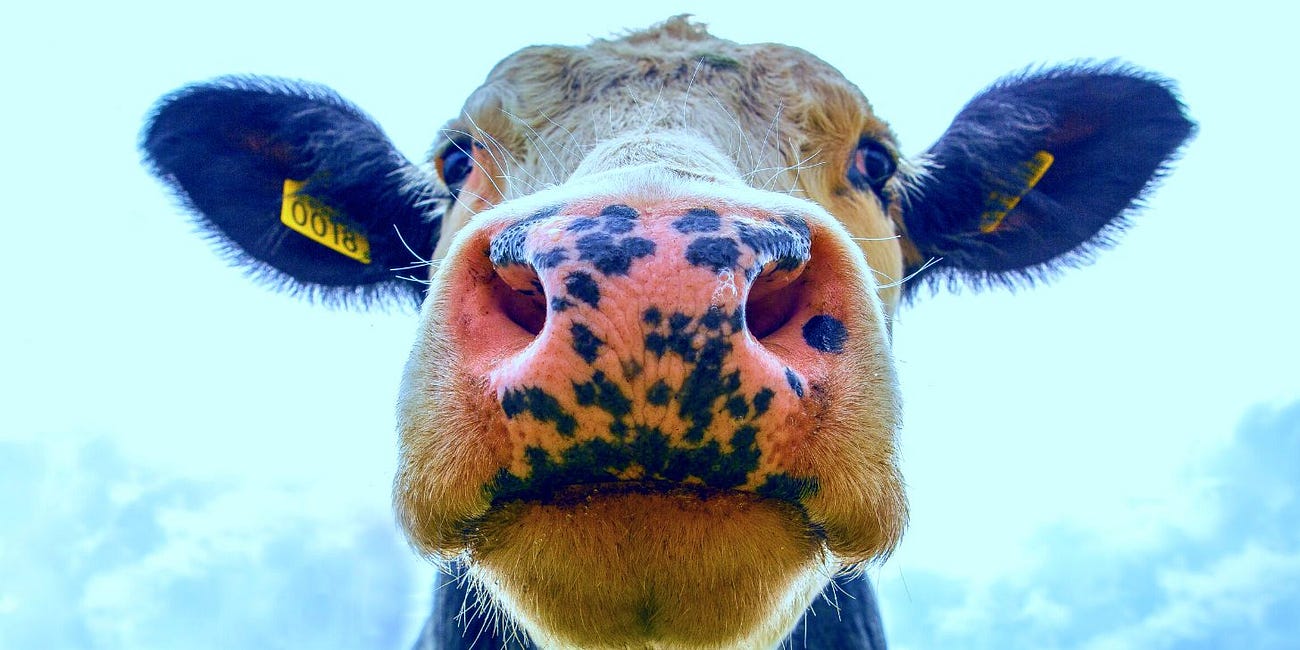
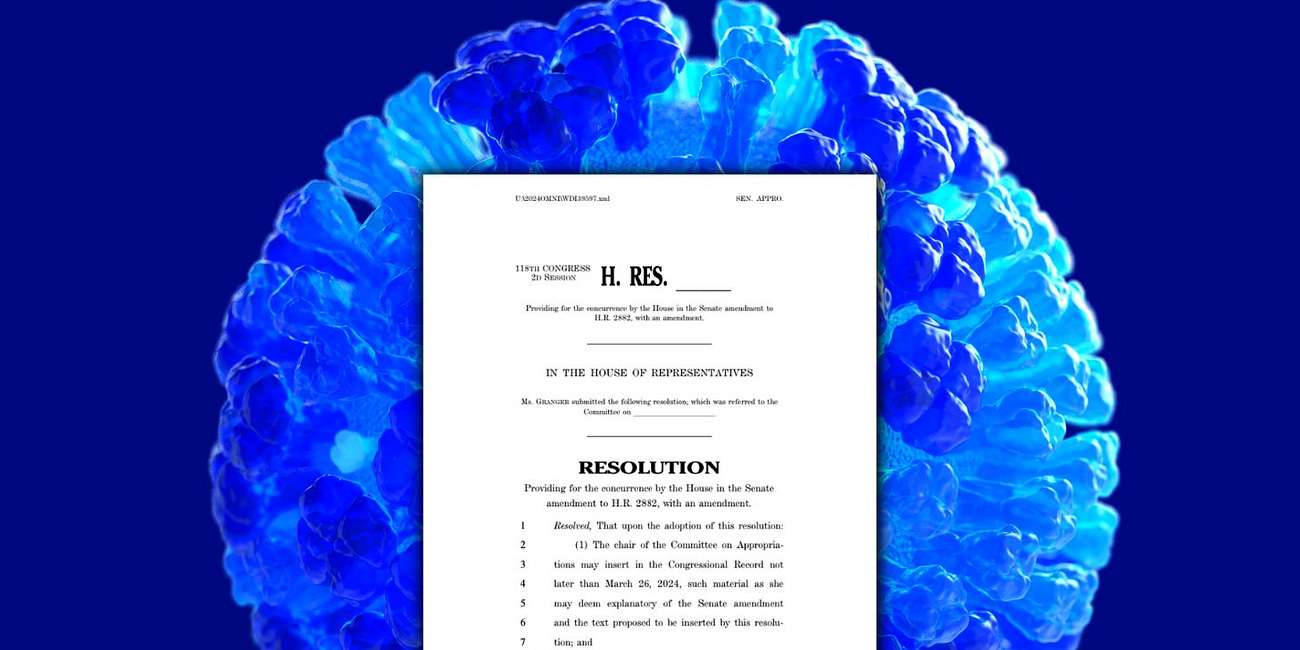
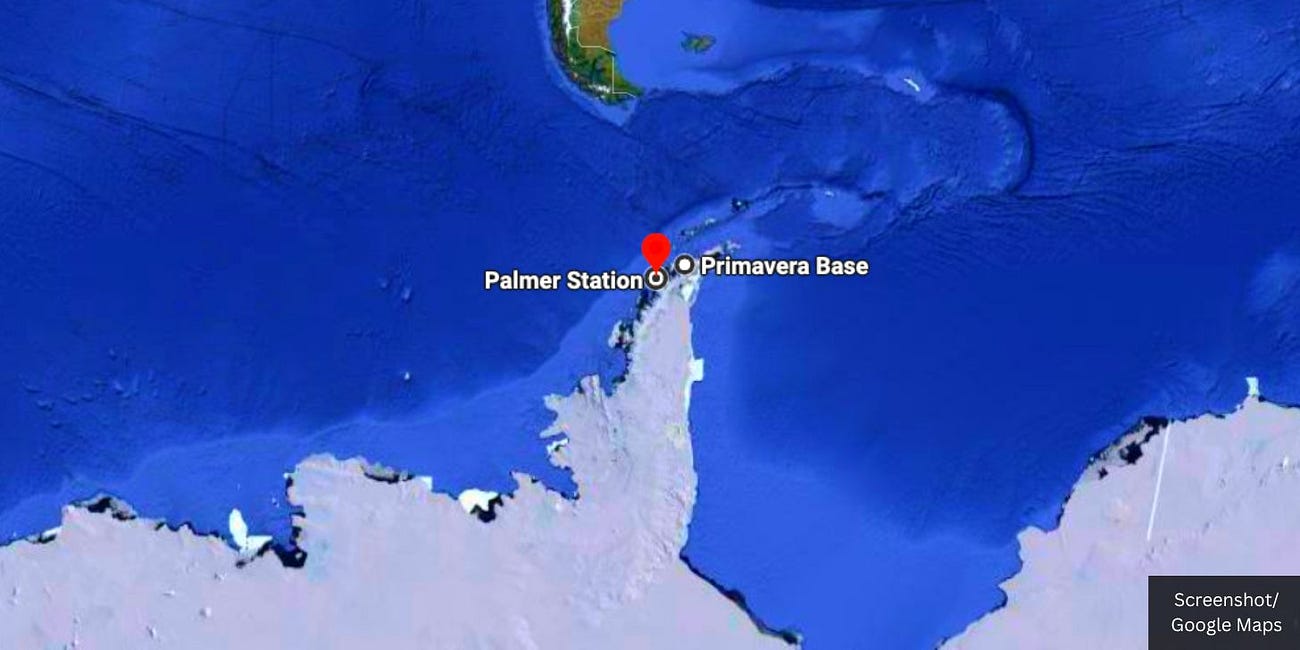

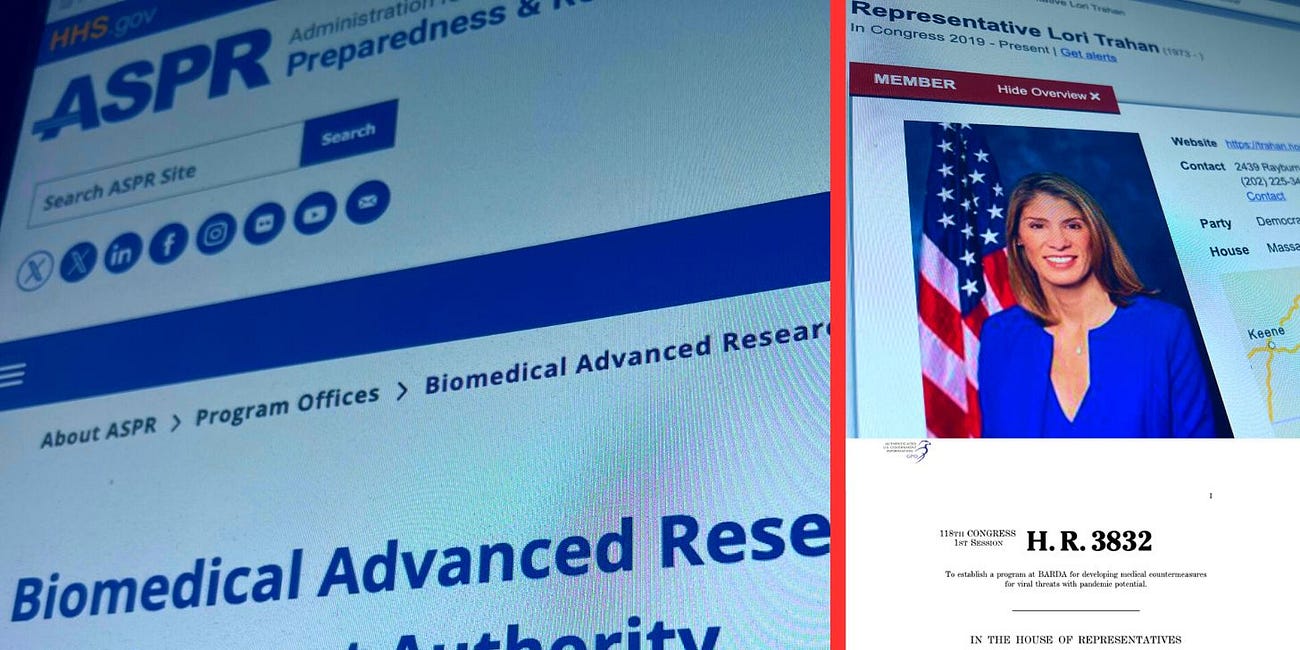
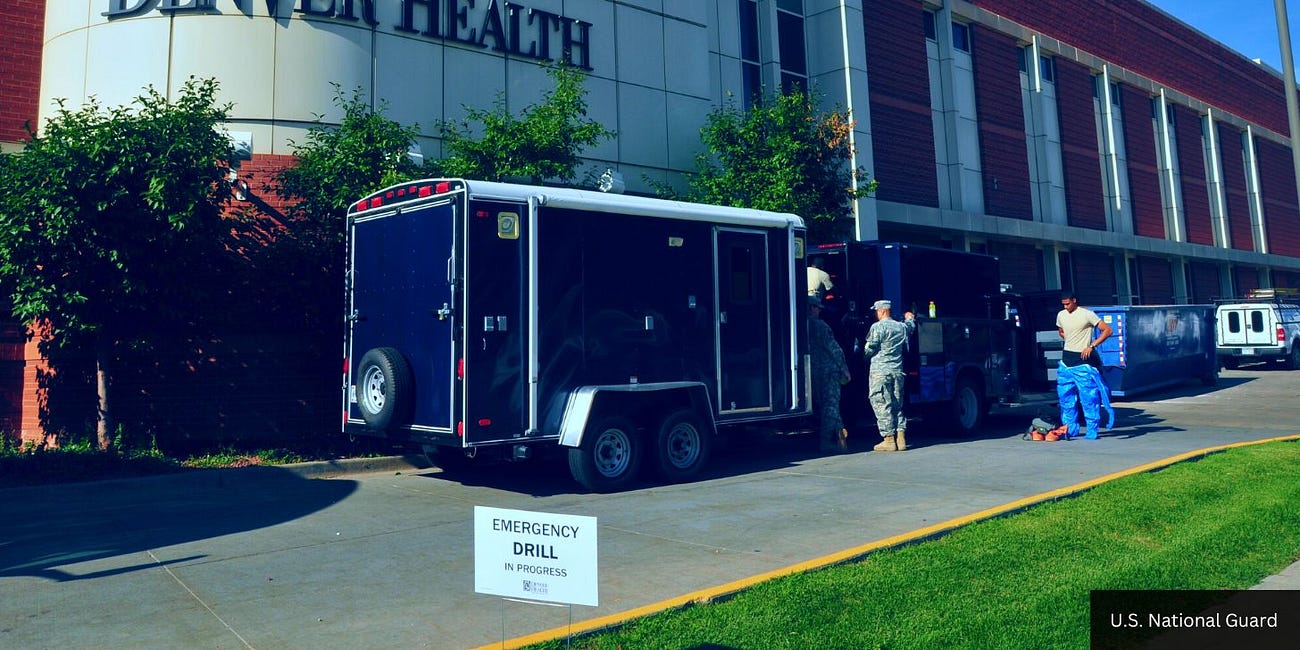
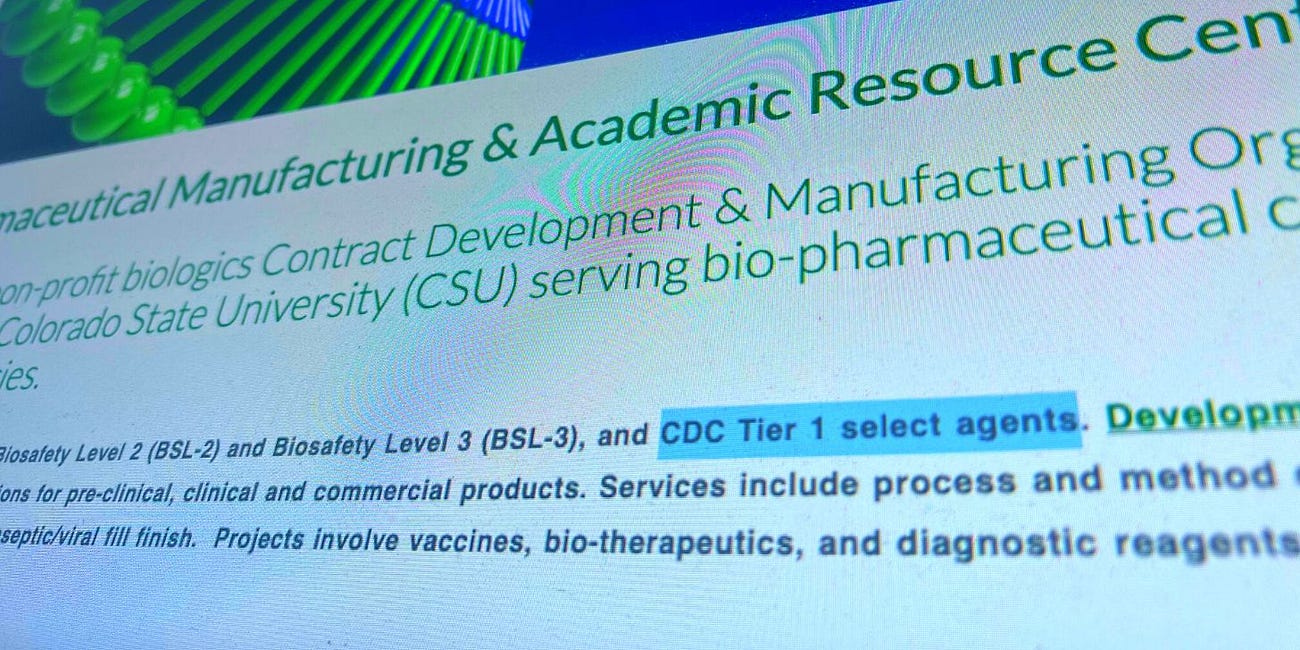
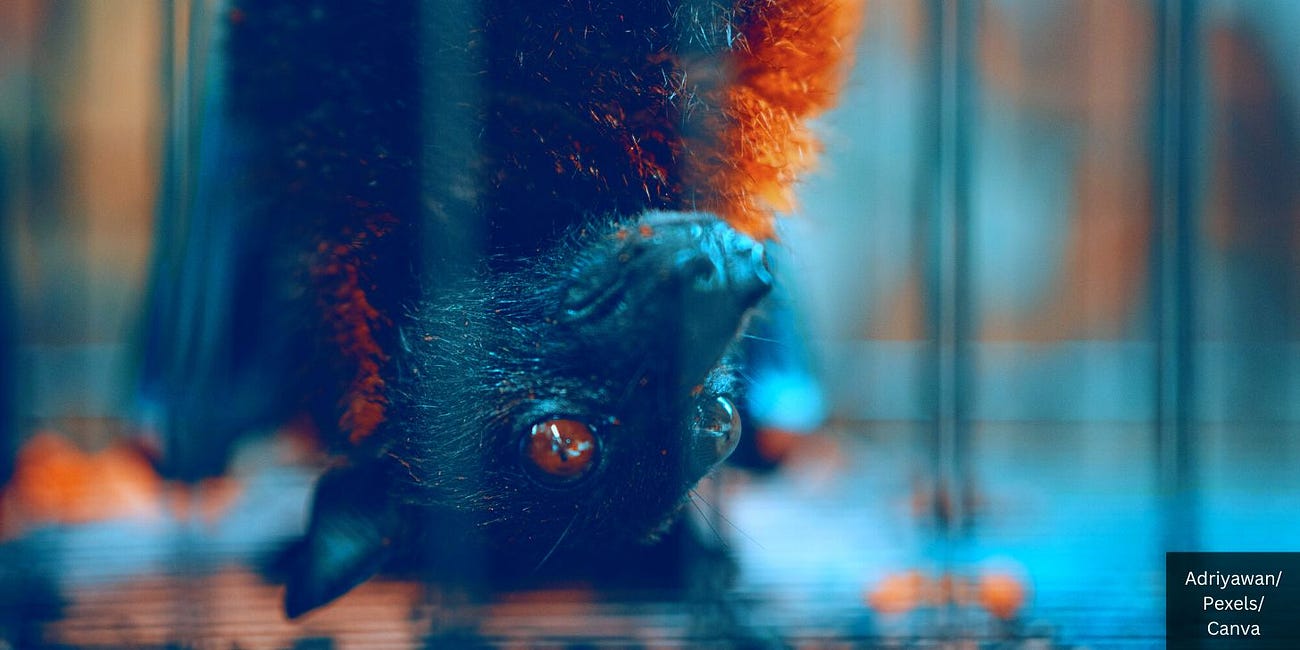


Just breath taking, all of this. Humans are so dumb! Where is RFK?